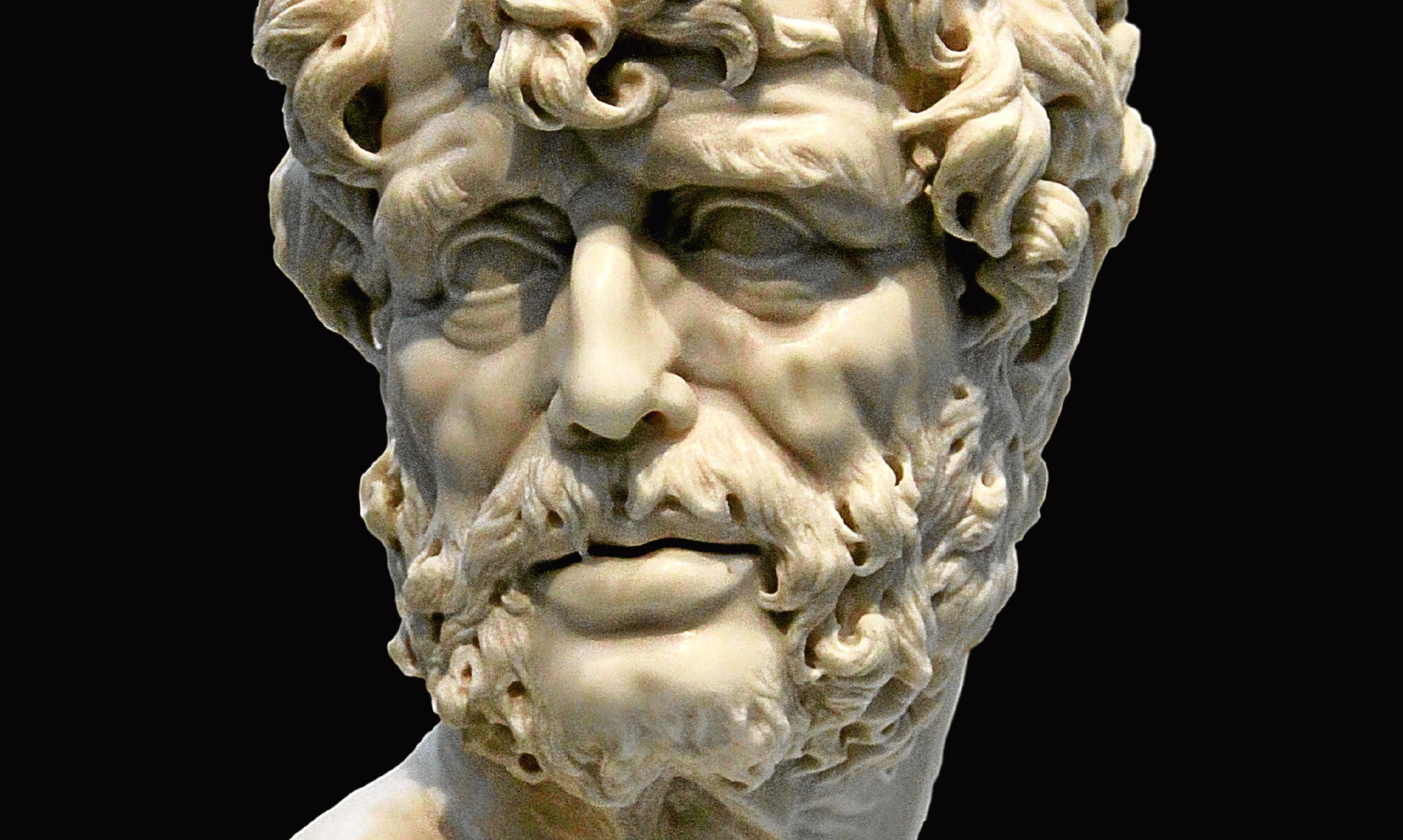We sit, you and I, between an Autumn Statement and Black Friday.
“If I had you with me, I should be glad to consult you and find out what you think should be done,” said the Roman philosopher Seneca – and it seems a good idea.
What should be done about an Autumn Statement which matters little for its headlines and performance but deeply for the state of our economy and a day coming where we are urged to spend money we do not have on things we do not need?
Seneca was a stoic.
Stoicism is in the news because the great popular writer AA Gill announced this week that he had cancer throughout his body – in his phrase “the full English” of rot.
He said that he acted “stoically”, only to be disappointed when told that all men did the same on such bad news.
In times of tragedy, we are all small heroes, brave in the face of cruel fortune.
Fighting back the tears and being practical is not a command of stoicism but how we understand it today.
Seneca’s philosophy says there is much we cannot control in life and it pays little to worry about those things.
Of the things we can control, it is best to accept the nature and limits of them and find happiness there.
The Autumn Statement is a sort of budget-like statement made by the Chancellor of the Exchequer to prepare the nation and finance markets for the near future.
This was the first economic signal from the new government which came into being this summer when Theresa May took power.
Much coverage of May and her Chancellor Philip Hammond’s approach has focused on the “just about managing”
It is extremely unlikely that anything said yesterday will be of much help to these JAMs, or the rest of us.
The reason is that the Autumn Statement made a series of small adjustments to what is huge issue – it straightened the tinsel on a Christmas tree which is about to fall over.
The real issue is that the UK has astonishing levels of debt while negotiating the economic minefields of Brexit and global slowdown.
Stoicism requires that you don’t be idiotically optimistic or hide from the truth – a stoic would say the real headline from yesterday’s statement is something like: “Britain’s economy could be heading for an almighty disaster but the governing class really hope that doesn’t happen.”
Hammond’s remarks have only a few moments left on the news cycle until they are brushed aside by the frenzy of Black Friday.
This is an American phenomenon which has taken off here, a single day when merchandisers slash prices in order to excite a buying mania which, hopefully for them, lasts until Christmas Eve.
In nations like the UK, where a significant part of the economy is the trade in personal stuff and services, events like Black Friday matter.
The standard advice from people in the political and media elite is to go out and spend, because it boosts economic growth.
That is dangerous advice; it encourages you and I to get further into debt and so place ourselves at greater risk if the economy falters.
Should the British economy hit bad times, you may lose your job – there is little you can do to prevent that.
In such a crisis, it will be the debt you hold that drags you down.
Our bank loans, credit card debts and mortgages are the things which link us to the global economy.
You may think I’m too pessimistic and the crash to beat all others may not come.
But that shouldn’t stop you taking wise precaution in the days and years when things are OK.
As Seneca advises “It is precisely in times of immunity from care that the soul should toughen itself beforehand for occasions of greater stress and it is while fortune is kind that it should fortify itself against her violence… If you would not have a man flinch when the crisis comes, train him before it comes.”
Caution against debt used to be common in our culture. Our version of the Lord’s Prayer once ran: “Forgive us our debtors, as we forgive them who debt against us.”
The command to “neither a borrower nor lender be” was familiar.
We have forgotten this and it is to our peril.
I may be wrong in warning of stormy economic times – economic forecasting is not as precise as, say, the medical diagnosis of cancer – though capitalism periodically crashes and the world has never known such debt as today.
If there should be no disaster, then there is still more happiness to be found in things other than money.
Pay down your loans and credit cards and once done, increase your mortgage payments, if you should be so lucky as to own a house.
Make 2017 the year when the soul toughens itself beforehand for occasions of greater stress.
